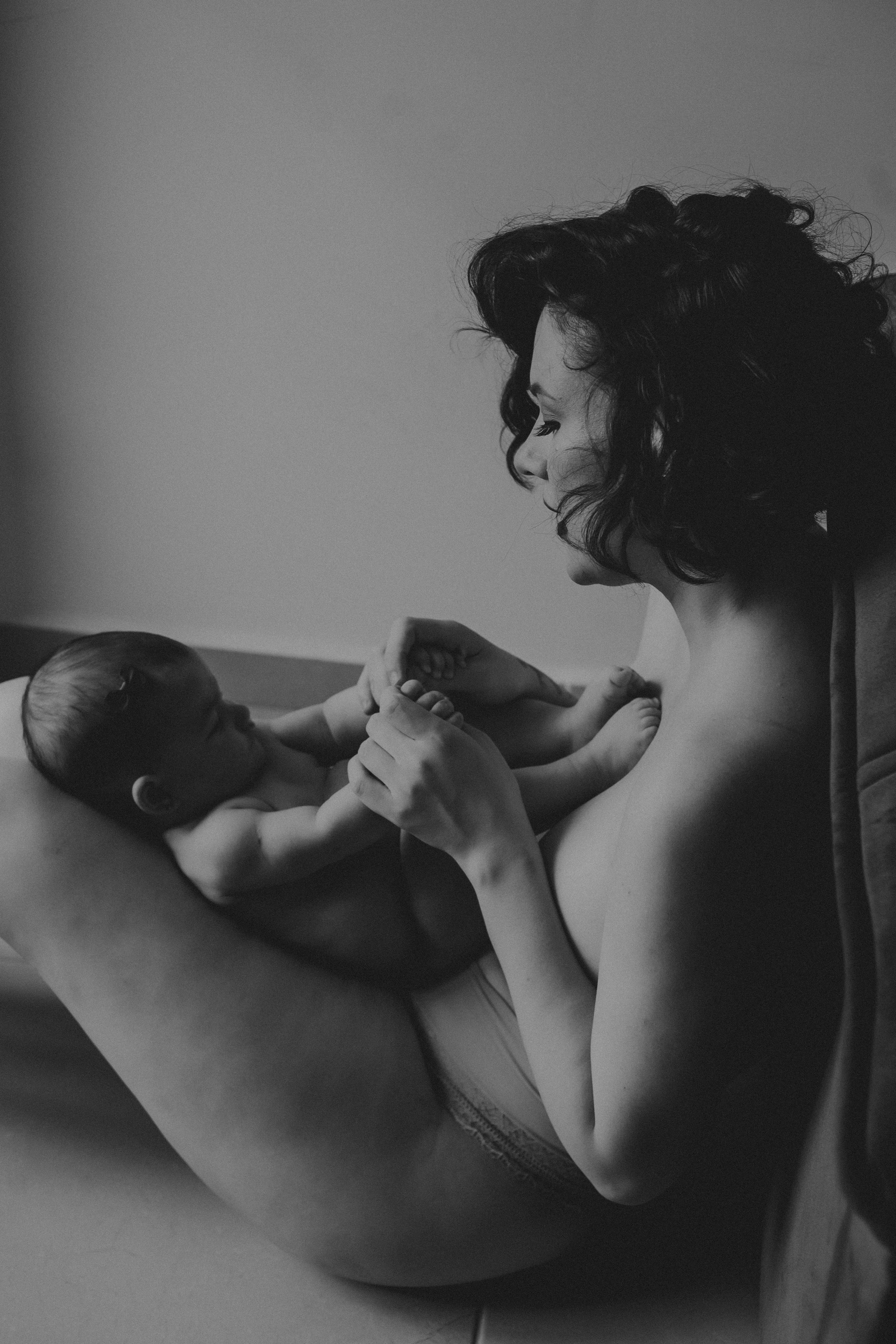5 Ways I love and 5 Ways I do not love my mother for
The most unforgettable moment

Among the many unforgettable moments that I experienced with my mother happened when I was in grade school. That day I was not feeling well. But I could not gather the courage to let my teacher know about it, because I did not want my classmates to think that I was some sort of sissy. Besides, it was an examination day, and I was determined not to miss it.
Suddenly my mother appeared by the door. My teacher, who was my mother’s friend, called me over and told me that my mother just wanted to have a few words with me. My mother hugged me, and I whispered to her that I felt I was having a fever. “I know,” she quietly replied. She nodded to my teacher, and my mother held my hand as we headed home.

I found myself in bed, while my mother was preparing her home-made concoctions for my high temperature. As she caressed my face and told me to get some rest, I weakly asked her why she was there at school. And did she know I was sick that day? Her answer would never leave my memory ever since.
The invisible umbilical cord that still binds
“You must remember,” she said. “Wherever you are in the world, I still feel you. It is because that umbilical cord that once connected our bodies is still there. You do not see it, but it continues to join us together. And it will remain that way until the day I die.” She was talking to a child and those words sounded like child talk. Little did she know that they would have a profound impression on me.
After so many decades later, whenever I think about this episode it still gives me goosebumps.
On this Mother’s Day, I would like to share the 5 reasons why I love my mother.
But let me start with the 5 things that I do not love my mother for.
First, I do not love my mother because she conceived of me.

No, it is not the reason I love my mother. Any woman with a well-functioning reproductive organ can conceive a child. And I doubt my mother and my father were thinking of me when they decided to consummate in that exact moment. I do not even believe they planned to have another human being come out of that; my best guess is that it was just one of those “routines” between husband and wife. So, no, this is not a reason for me to love my mother.
Second, I do not love my mother because she gave birth to me.
No, it is not what I love my mother for. Once conceived, that tiny human being must come out – in whatever way. And even if my mother delivered me in a natural and painful way, still this does not mean I love her for that.
Third, I do not love my mother because she spent sleepless nights nursing me.

No, it is not what I love my mother for. All mammals nurse their young. My mother did not have to be a sentient being to perform this instinctive act. For sure her precious and nutritious milk would make it certain I started life on a strong footing. But this was not enough reason I love my mother.
Fourth, I do not love my mother because she made so many sacrifices for me.
No, it is not what I love my mother for. Any normal mother would sacrifice for their child, in any manner and form. I believe it’s still very much a part of motherhood. And in many cases, at this stage it can be argued that a selfish motive can creep in. A mother is willing to make sacrifices for a child to make them feel indispensable. If sacrifices are necessary to keep the bond, so be it. And I do not see anything wrong with this. It is part of being human. We are all selfish in some ways. Nobody’s perfect. But, no, this is not why I love my mother.
Fifth, I do not love my mother because I really believe in an invisible umbilical cord.
Wait. This may be true. But I do not want to expand on this since it is not considered empirical. This is hard to verify by human observation or experienced by many. So, I leave this to those who believe in it. Your mother can feel you no matter the distance, anyone?
Now, let me count the 5 things that I love my mother for.
First, more than the sum of its parts.
I love my mother for more than the sum of all those five things above. Even if any mother can do all those things, each mother has a unique and special way of doing each of them; and to each of her children. It is simply because each child is unique.
Second, unconditional love at its best.
I have read numerous books on unconditional love – most of them in terms of spiritual and religious sense. And of course, there are true stories of people who recount their own testimonies of having experienced this highest form of love from others. There are also those whose lives are described and remembered generously as having achieved this height. But it is when we ourselves witness it up close and personally that we are convinced that unconditional love is humanly possible. To me, that person is my mother.
You see, my mother has two daughters and seven sons. Growing up we would ask her numerous times – half-jokingly – who was her favorite. And my mother would always give us a look that says, “What kind of question is that?” As if we were being disrespectful just by asking that question. But she would always give her refrain, nevertheless. “You are all equal to me.” She would say. “I love all nine of you the same way.” As I understood now, what she really meant was we were all equal before her eyes but each one was unique in her heart.
Third, my mother has consistently lived that unconditional love.
I swear over the life and health of my mother that she has been true to her words. I have never, ever, witnessed her giving any preference in any form and way to any of her nine children over the others. And the more amazing thing is that she had done this even until she could no longer show it. This consistency has become a part of who she is. And I love her for that.

My eight siblings are still around, and it is my heartfelt hope that they get to read this. And I can be brave to claim that any single one of them has experienced our mother, each in a unique way.
Fourth, my mother has never pressured us to be like her.
I find this quality of my mother very extraordinary. Deep inside me I consider her a living saint. But thank goodness, she never acted like one. From the day I became conscious of my surroundings, I would see my mother faithfully do her personal nightly devotion. But I never remember her imposing this on us. We joined her in this hour-long religious observance not because we wanted to be with God. We wanted to spend that time with our mother. And she was faithful to her Sunday duty in the church, but she never showed displeasure if we did not show the same dedication.
Our mother never tried to mold us into her own image. We tried to be like her not because she told us to be so; her action always spoke louder than her words of admonition. And I love her for that.
Fifth, the hardest part: letting go!
This is the part that rounds off the list of why I love my mother. And I guess this is the most difficult part of being a mother – when it is time to let go.
I think it is easier to play mother when the young are so dependent on the mother. This becomes a cycle: the feeling of being needed gives the mother more motivation and energy to give more. And the more they receive, the more the young show affection and gratitude. An endless cycle.
Until that cycle breaks. When the moment the mother feels her child does not need her anymore. And many mothers’ heart break when this happens. Did it happen to my mother? Yes, it did, I am sure.
So, how did my mother face this most difficult stage of motherhood?
The letting go of the physical presence
There was this family tradition that was started with our eldest sibling. When one got to college, we had to travel more than 600 kms away from our parents. We had great colleges and universities nearby, but it was more than about school. There was prestige and privilege at play when studying in a big city. And this continued from the next sibling to the next. Until there was none left. Suddenly it dawned on my parents that an empty nesting had finally come.
Many years later I asked my mother how she felt at that time. I reminded her that I could not remember her raising even the slightest protest over her children leaving them. Didn’t she miss us?
“Of course, it broke my heart.” She said in a very soft voice. “Your father had to wake up at night because he suddenly missed you all. Whenever this happened, I lost sleep too. But I had to be strong for your father. Sometimes he wondered if it affected me as well. Unbeknownst to him, I would hide my tears. Every night in my prayers, I imagined all of you being at my side. That’s how I ultimately found the peace and sense of acceptance.”
This was how the letting-go stage of motherhood started for my mother. It was the physical distance. No more laughter to hear. Gone was the nightly storytelling ritual. There was no one to enjoy and appreciate her cooking. No warm bodies to hold and hug, especially before bedtime.
The letting go of her intellectual influence
I just realized this later in my life. I now remember that no one among her children ever asked for her opinion as to their chosen courses in college. It was just presumed that our mother liked surprises, and she would never disagree on whatever career path they chose. My mother was very well-educated, and intelligent. As a teacher herself, that must have been hard to accept.
The letting go of all social connections
Ultimately, her children all became successful in their career. But no one came back home. Occasional visits were all she could look forward to. This was ages before the internet came into the world. There was no Facebook, no Messenger, no Viber, no TikTok, nothing of that sort. And the long-distance call was only for urgent events involving death and life-threatening situations.
The letting go of her ultimate maternal instinct
In some cultures, mothers have a large role to play when it comes to their future in-laws. Most especially with their sons. And this was mutually accepted. In fact, males who have wholesome experiences with their mothers would prefer to find mates who can approximate the qualities of their own mothers. And my mother belongs to that kind of culture.
But I do not remember any of my mother’s seven sons having presented either their casual girlfriends or their future wives to her. It was either she got the news and invitation of the impending marriage or be surprised by a son with a newly minted daughter-in-law in tow. Seven times my mother would miss her chance to have any say. And this was true with her two daughters, as well.
One time I asked her about this. Being a good person and a loving mother, she just simply said she would learn to love whoever her children would choose to love.

On this very special day for mothers, I am dedicating this piece to her. My mother is turning 95 this year. And we are 13,000 kilometers apart. I can only see her on a live video. But she can no longer open her eyes, or hear my voice. And it’s okay. I trust that our umbilical cord connection is still working.
And here I would like to give honor and gratitude to my older brother. With his own family, he is making so many sacrifices by taking good care of our mother. I will forever be grateful to them. And I would like to tell them that our mother is not just a burden. She is also a treasure.
It’s been a long time
The last time I saw my mother was in 2014, after three long years. And it’s been almost 10 years since then. It is my hope that I can still see her very soon sometime this year.

But if not, I will still be at peace. Ten years ago, I told her that with the distance between us, anything could happen, and we may not see each other again. She pressed my hands and nodded. She gave me a sad smile, and some tears. When I left her, the one image that I purposely planted in my mind was her gnarled hands. I held them in my own hands. They felt so fragile.
The image of my mother’s “battered and scarred” hands symbolize her motherhood. Those are the hands that fed us, cared for us, comforted us, sacrificed for us. The same hands that offered us in her prayers.
I invite you to remember your own mother. And ask yourselves why you love her.
If you are a mother, ask yourself why your child or children love you.
And if you plan to be a mother, what kind of a mother will you be?
What do you think of this post? Please share your thoughts by clicking on the underlined Let Me Know Your Thoughts below.


